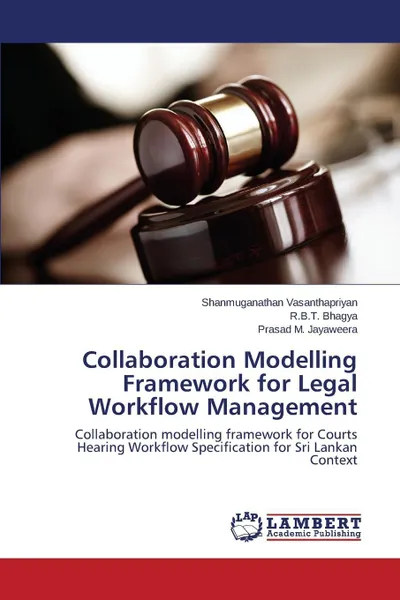Collaboration Modelling Framework for Legal Workflow Management 12+
2014
52 страницы
Категория: Литература на иностранных языках
ISBN: 9783659608476
Язык: Английский
🔖 Effectiveness of the legal sector is highly relying on the coordination of collaborative workflow activities to cope with highly dynamic and complex information exchanges among different partners. In the context of ever increasing number of legal cases and roles offering different legal services, we have discovered the appropriateness of the adaptation of Workflow Management Systems in legal sector to address the resulting complexities and performance issues in legal service collaborations. In this work, a Legal Collaboration Modelling Framework has been introduced with the objective of facilitating the foundational requirement for setting up workflow systems in legal sector. In the proposed framework, a set of primitive transaction patterns have been developed in align with UN/CEFACT's proposal for generic business collaboration modelling. The two main contributions of this work are a collaboration modelling framework and application areas of the framework in district courts legal process modelling. The proposed framework was semantically rich enough for composing complex multi-party legal collaborations with promising results in workflow coordination.
Мнения
